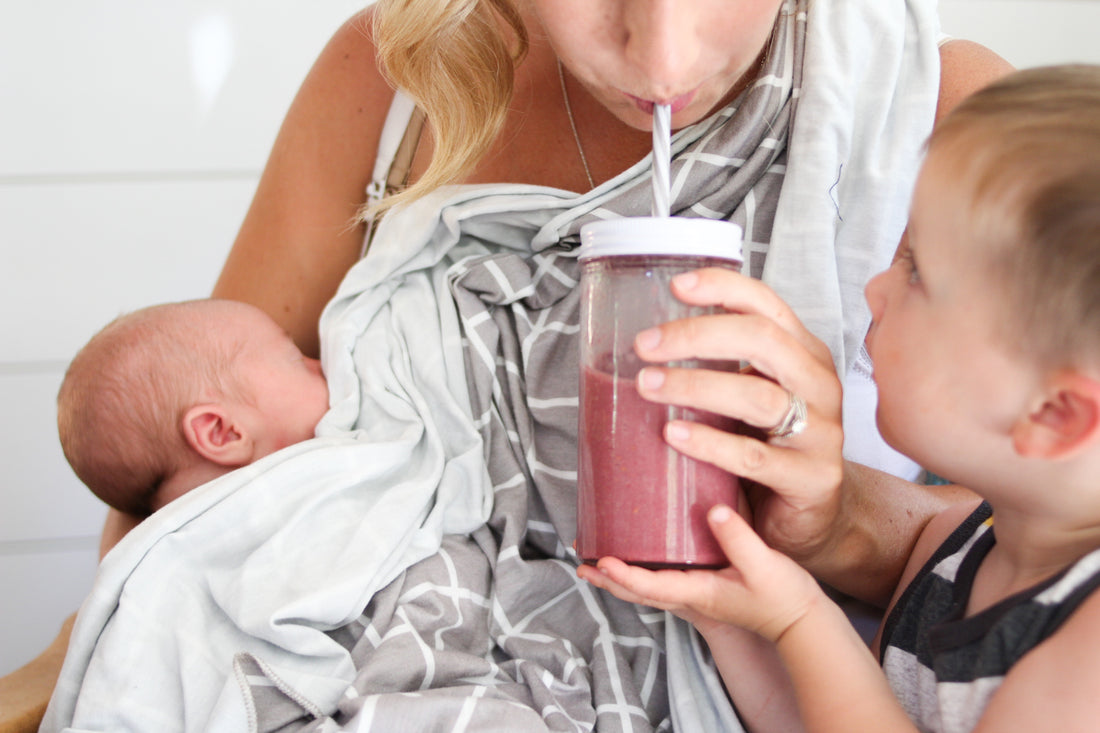The keto diet is gaining in popularity for weight loss because it is very effective for burning fat, and if done properly, burning stored fat. But, can breastfeeding mamas use the keto diet to lose the baby weight? There is still little research on breastfeeding and the keto diet specifically, but we can look at what research and experts say.
First, what is the keto diet?
You may have heard the keto diet is amazing for weight loss, and be thinking about it as an option to lose the baby weight, but not fully understand what it is. The keto diet is a very low carb, and high fat diet that forces your body to use fat as fuel, rather than carbohydrates. It is said that your body will then use dietary fat and stored fat for energy, which results in losing fat.
What do experts say about ketosis and breastfeeding?
Not many experts have made statements concerning the keto diet and breastfeeding. It is stated that while breastfeeding, you are sending glucose, or carbs, to your baby, thus burning more carbohydrates than a normal person. The standard keto diet isn't the best solution because you need more carbohydrates for both mama and baby to function. Experts suggest that 30 grams of carbohydrates or glucose is sent to baby, and the keto suggests eating less than this for an average female.
Eating too few carbs can be dangerous for breastfeeding:
Eating too few carbohydrates can put a breastfeeding mother into ketoacidosis, which has actually happened to a mother in Sweden, who was eating low carb before breastfeeding, meaning her body was adapted.
Experts suggest eating at least 50 grams of carbohydrates per day for breastfeeding mothers.
How to make low-carb eating safe for breastfeeding:
It is actually fairly simple to make low-carb eating safe for breastfeeding by adding in extra fruits, veggies, and complex carbs to compensate for the additional glucose being used as fuel for both mama and baby. At the end of this post, we have an awesome keto lactation smoothie that uses raspberries and avocado to help with the additional glucose needs, but still keep the carb-count low.
Our favorite low-carb carbohydrates for breastfeeding:
Eating carbohydrates does not mean eating processed foods like chips, bread and crackers. There are carbohydrates that are low-carb because they are high in nutrients and fiber, yet low in sugar. Here are our top picks:
- Sweet potatoes
- Apples
- Berries
- Quinoa
- Beans
- Nuts
- Basmati Rice
- Sprouted Grain Bread
These low-carb carbohydrates are really important to supplying breastfeeding mamas with both the nutrients and glucose they need to fuel themselves and babies, without getting too much glucose that will be stored as fat.
Is Milk Dust low carb?

The answer is yes! Milk Dust offers only 2 grams of sugar per serving, and it has 2 grams of fiber, leaving the total carbohydrate count at 5 grams per serving. Milk Dust is specifically formulated to be low in sugar, but offer an amazing sweet taste (just read our reviews!). This helps curb sugar cravings, balance blood sugar and offer the amino acids new mommies need. As you work through your keto diet, and make adjustments necessary for breastfeeding, try this amazing keto lactation shake!
Keto Lactation Shake For Breastfeeding Mamas

This Keto lactation shake is amazing for breastfeeding mamas needing a sweet, lactation boost, but wanting to stay low in carbs.
- 1/2 Avocado fresh
- 1/4 cup frozen raspberries
- 3 tbsp cream
- 1 scoop Milk Dust
- 1/2 cup water or keto-friendly milk for blending (use as needed for desired thickness)
Blend all ingredients together in a blender and enjoy! Your water/milk for blending can be added a few splashes at a time for desired consistency, depending on if you like a thicker or thinner smoothie!
This recipe is specifically made for breastfeeding mamas on the keto diet. The keto diet can have wonderful weight loss and milk supply affects for some, and because Milk Dust is low in sugar, it works great for the keto diet as well!
Eating low carb while breastfeeding isn't necessarily dangerous, but does require re-evaluating what low carb means.
If you've had success with the keto diet in the past, try adjusting your carb intake to higher than you were before, then tweak it as you monitor your health and milk supply.




